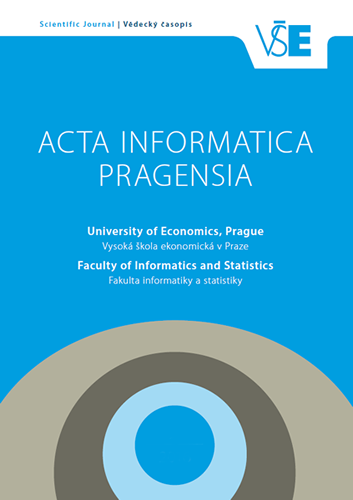A Transitive Recommendation System for Information Technology Communities
A Transitive Recommendation System for Information Technology Communities
Author(s): Waleed M. Al-Adrousy, Hesham A. Ali, Taher T. HamzaSubject(s): Business Economy / Management, ICT Information and Communications Technologies
Published by: Vysoká škola ekonomická v Praze
Keywords: Social network; Recommender systems; Collaborative filtering; Parallelism; Web mining; Graph theory
Summary/Abstract: Social networks have become a new trend for research among computer scientist around the world. Social network had an impact on users' way of life. One of social network usages is recommendation systems. The need of recommendation systems is arising when users try to know best choice for them in many items types (books, experts, locations, technologies, etc.). The problem is that a single person can't try all alternatives in all possibilities life goals to compare. Thus, a person has to use his friends' expertise to select better option in any item category. This process is the main idea of "Recommendation Systems". Recommendation systems usually depend on users-to-items ratings in a network (graph). Two main challenges for recommendation systems are accuracy of recommendation and computation size. The main objective of this paper is to introduce a suggested technique for transitive recommendation system based on users' collaborative ratings, and also to balance loading of computation. All this has to be applied on a special type of social network. Our work studied the transitivity usage in connections to get a relation (path) as a recommendation for nodes not directly connected. The target social network has eight types of nodes. So, there are techniques that are not suitable to this complex type of network. Those we can present a new support for recommending items of several types to users with several types. We believe that this functionality hasn't been fully provided elsewhere. We have suggested using single source shortest path algorithm combined with Map Reduce technique, and mathematically deduced that we have a speeding up of algorithm by 10% approximately. Our testing results shows an accuracy of 89% and false rejection of 99% compared to traditional algorithms with less configuration parameters and more steady count of recommendations.
Journal: Acta Informatica Pragensia
- Issue Year: 2/2013
- Issue No: 1
- Page Range: 1-17
- Page Count: 17
- Language: English

